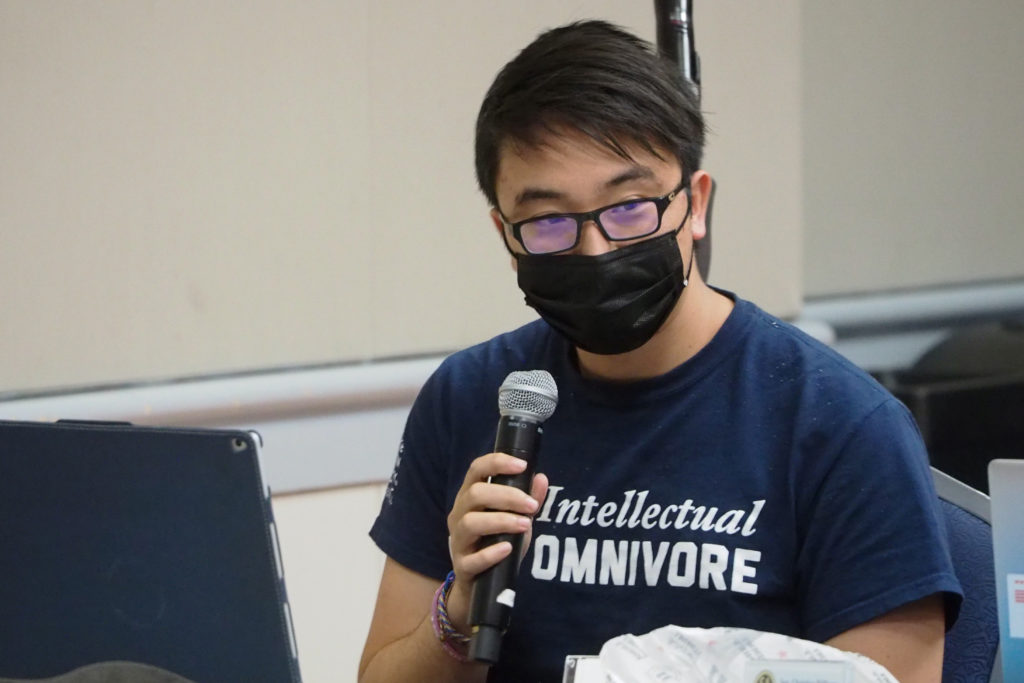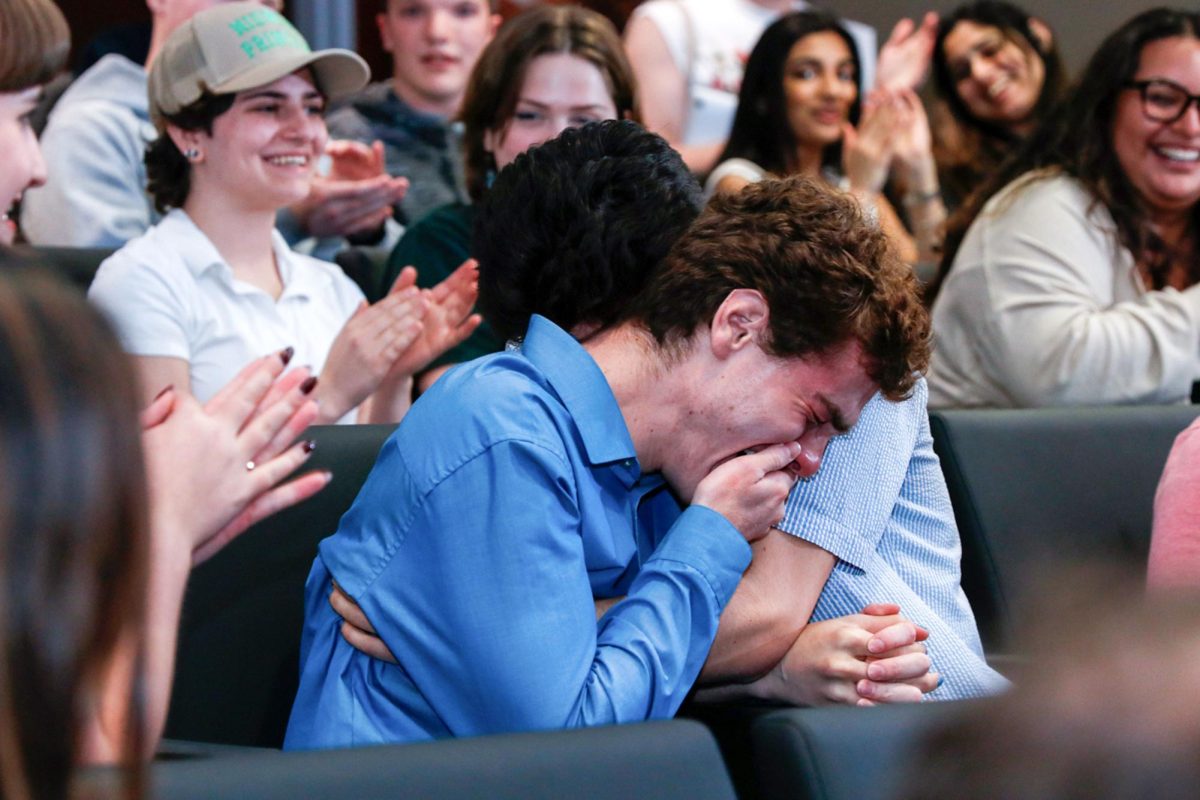The Student Association Senate passed a resolution urging the University to create a hybrid option for classes at its meeting Monday.
The senate unanimously voted in favor of an option that would allow students to tune into classes remotely and view live recordings of lectures and discussions instead of attending in person. The resolution comes less than a month into the University’s first semester with full in-person learning since spring 2020, when campus emptied and classes shifted online for the next year and a half during the COVID-19 pandemic because of widespread public health concerns.
The University has since reopened this fall with in-person classes, but officials granted accommodations for some professors who will still teach remotely during this semester. Officials upgraded classrooms with new technology – including computers, web cameras, microphones and virtual platforms – to help faculty record their lectures.
SA Sen. Gabriel Young, CCAS-U, introduced the resolution called the Hybrid Hippo resolution to call for the remote option in light of COVID-19 cases that have reached new highs this past month on campus and across the country.
“If a student wants to attend in person, then by all means go ahead,” Young said at the meeting. “Professors have been mandated to record sessions using live streaming software, and if they’re already streaming then students should be able to tune in virtually knowing the consequences of virtual classes.”
The resolution calls on faculty to discontinue taking attendance for class grades and penalizing students for missing classes. Senators requested officials to mandate the hybrid model for all classes, except for those where in-person attendance is “absolutely mandatory” like art classes or labs, according to the resolution.
The senate also voted to charter a textbook exchange program for students to buy or trade books through a Google Form, where students could post their materials with course information and price in addition to links to PDF files for textbooks. Young, the sponsor of the resolution entitled the Hippo Community Library Act, said the legislation seeks to connect students sharing widespread struggles to afford textbooks that often reach hundreds of dollars in cost.
The resolution states that the SA’s undergraduate education policy committee will update the library annually and manage committee aids who would find books and connect with students. The committee’s vice president will oversee the library each year, while the SA markets and advertises the new service, according to the resolution.
SA Sen. Athena Atsides-Del Valle, U-At-Large, said the program will make textbooks more accessible for students who may not be financially supported by their family or friends.
“It’s a very expensive process for them to buy all these textbooks,” Atsides-Del Valle said.”They don’t have parental or familial support of any type, and it’s really difficult for them to be able to afford, whether they want to buy an econ textbook or to eat dinner that night.”
The senate also passed a bill to reallocate more than $25,000 to the general fund for co-sponsorships that senators use to distribute funding to student organizations. The legislation allocated more than $21,500 to the executive and legislative branches and more than $4,300 to University gifts.
David Murray – the president of GW Veterans, which supports military-affiliated students – spoke before the senate as part of a recent initiative led by the SA’s new community liaison for senators to hear an update from a different student organization at each of its meetings. Murray said GW Veterans is working to collaborate with the SA more this year to create a social support network for veterans and military-affiliated students through art therapy, service projects and outdoor and fitness activities.
“Really what I want is for the GW veterans and military population to be able to come to things with you,” Murray said. “I want you to invite us to come be part of the student body.”
Senators unanimously confirmed senior Patrick Burland, junior Sophia Chin and freshman Grigory Menshikov as members of the SA’s special election committee, which could oversee referenda on first-year senator elections this fall, if permitted by the Student Court in light of a lawsuit filed last week.
The SA’s Office of the Legislator General filed a complaint against legislation that the senate passed last week, which would establish fall referenda that could bring first-year seats back to the senate. The court issued an injunction Monday to block any referenda until Sept. 27.
Senators also unanimously confirmed first-year graduate student Kristen Nguyen as a senator for the Milken Institute School of Public Health, leaving three vacancies in the senate.
Tara Suter contributed reporting.








